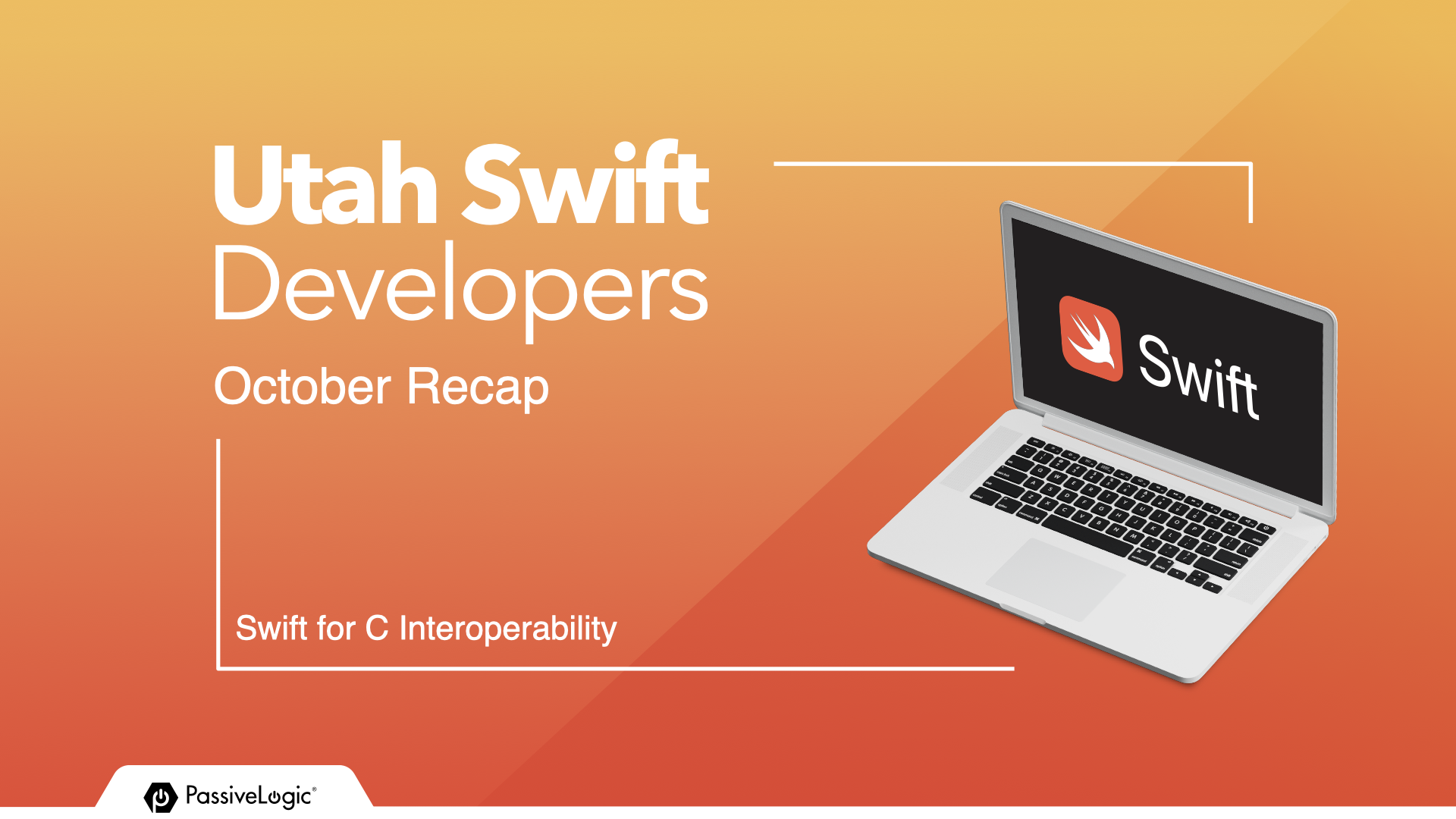
October Swift Meetup Recap | Swift for C Interoperability

In October’s Swift Meetup, lead by PassiveLogic’s Head of Platform, Austin Payne, and CTO Jeremy Fillingim, insights were shared on how Swift can be an efficient and effective language for testing and debugging C code, highlighting specific advantages and practical applications. At PassiveLogic, we've found that using Swift significantly simplifies C code testing, reducing code complexity and streamlining interface management.
Why Swift for C Code?
Austin pointed out that Swift is far more expressive than C, because it enables developers to write fewer lines of test code while achieving higher coverage. In internal PassiveLogic source code, we've been able to achieve over 85% test coverage using only 200 lines of Swift, which we estimate would have required 10 times as much code in C. This reduction in code translates to significant time savings, allowing us to focus more on development and less on debugging. For developers dealing with simpler C code, Swift offers a straightforward approach to creating clean interfaces and integrating tests.
Beyond its expressiveness, Swift’s seamless integration with debugging tools like Xcode and Visual Studio Code allows for efficient step-through debugging across languages. With Swift, developers can test and debug C functions without leaving the Swift environment, making it easy to dive into C functions directly and leverage native debugging features. For teams seeking to improve their C testing processes, Swift offers a viable path forward, especially for those managing simpler interfaces.
Navigating Complexities in Linking and Library Integration
While Swift works well for straightforward C projects, complex projects may face linking challenges, particularly when involving dynamic libraries. As a workaround, our teams have explored various linking options, and found success when including statically linked libraries. He suggested that when working with dynamic libraries, teams should assess the potential costs and benefits, as the linking process can require significant time and effort. However, if the C code is uncomplicated, Swift’s testing framework can serve as an ideal option.
Swift and Advanced C++ Compatibility
While we primarily focus on C at PassiveLogic, Swift also supports C++ interoperability. Although Swift’s C++ support is still evolving, the language has made impressive strides in handling advanced C++ features. Our teams have explored both languages, noting that Swift has done a solid job of bringing across complex code constructs with minimal difficulty. Other languages like Zig have also gained traction for C interoperability, but Swift remains a good choice for those working extensively with C++ features.
The Case for Testing C Code in Swift
PassiveLogic has been able to reduce the complexities often associated with C testing by leveraging Swift’s clear syntax, high-level constructs, and accessible debugging tools. If you're working with C or C++ and looking to simplify your testing workflow, especially for prototypes or projects with well-defined interfaces, we encourage you to explore Swift as a testing framework—especially for straightforward projects and prototypes.
With growing support for cross-language compatibility, Swift continues to stand out as a viable option for developers aiming to simplify their testing, debugging, and interface creation processes. As Swift evolves, developers can expect even more powerful tools for managing complex language interoperability challenges.
Resources
- https://clang.llvm.org/docs/Modules.html#module-map-language
- https://developer.apple.com/documentation/swift/unmanaged
- https://developer.apple.com/documentation/swift/using-imported-c-macros-in-swift
Recording Info
If you would like to watch the Zoom recording of Austin and Jeremy’s presentation, you can do so at this link.
https://passivelogic.zoom.us/rec/share/9LTZs16ExMGesU6wXuYmWXTTeWeT8GtyoJkAWDhYcYNSMZ5a4-d8zpIAY_C763Ik.bP0Cc6D-HRYUwlR7
Passcode: !bS*d=98
Please follow us on Meetup to join us at our next Meetup.